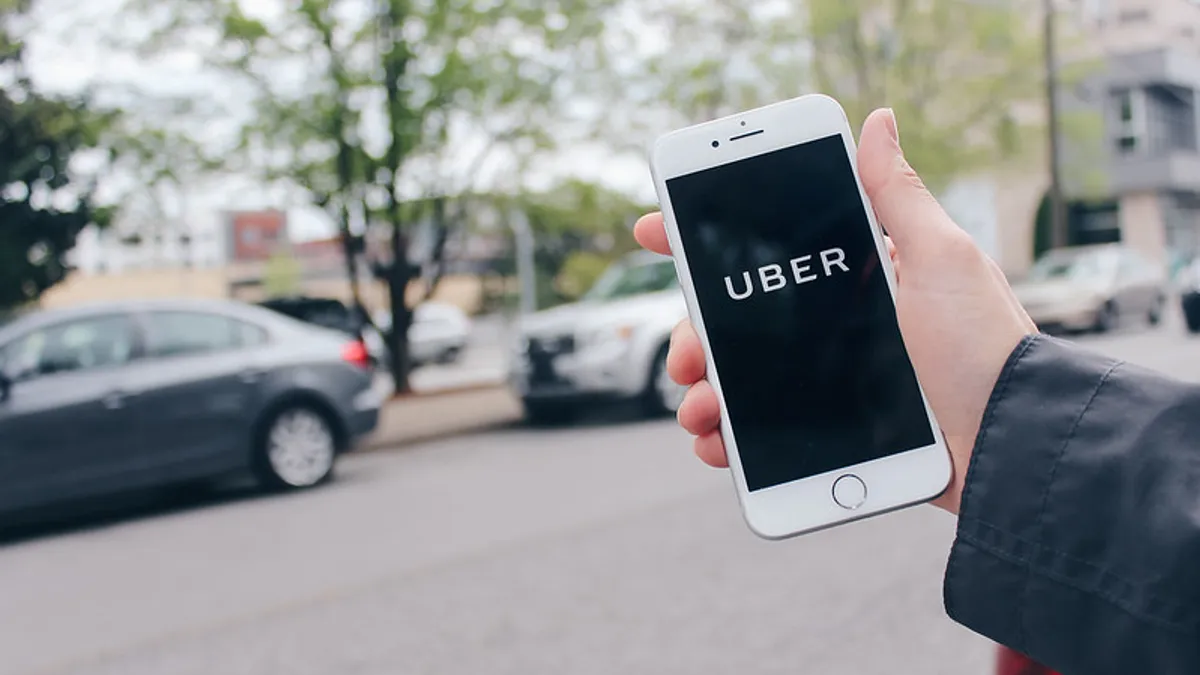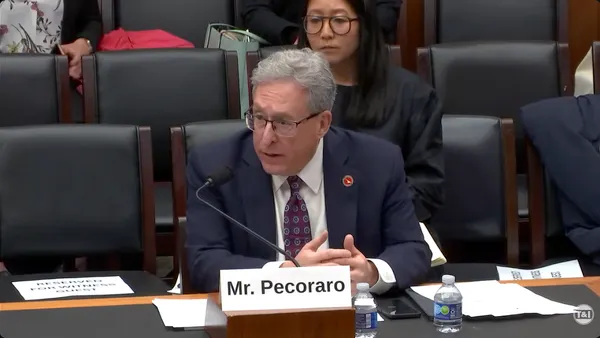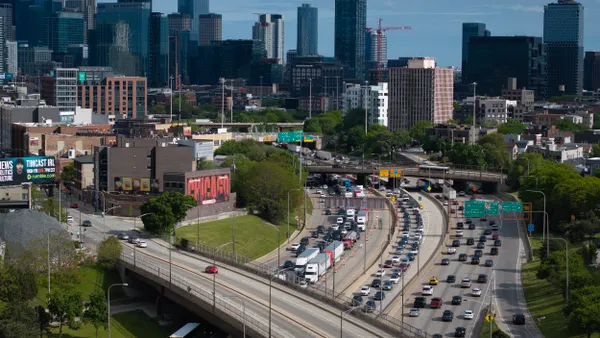Dive Brief:
- Ride-hailing giants Uber and Lyft announced a partnership late last week on the Industry Sharing Safety Program, an effort by both companies to share information about drivers who have been deactivated for the most serious safety incidents including sexual assault and physical assaults resulting in a fatality.
- The two companies will share information on drivers deactivated related to sexual harassment, sexual misconduct and sexual assault, which are contained within the National Sexual Violence Resource Center's (NSVRC) Sexual Misconduct and Sexual Violence Taxonomy, as well as fatalities after a physical assault. That information will be administered by HireRight, which will ensure each company abides by best practices in what they called a "survivor-centric, comprehensive process."
- Uber first pledged to share the names of drivers banned from their platform in late 2019 when it issued its first-ever safety report, which disclosed there were nearly 6,000 reports of sexual assault from 2017 to 2018, involving both riders and drivers. The information-sharing program will be open to other ride-hailing and delivery companies to join if they adhere to requirements around data accuracy and consistency around incident reports.
Dive Insight:
Uber and Lyft have come under fire repeatedly for not doing enough to protect safety, and some experts have suggested the number of sexual assaults involving the companies could be much higher, as assaults can frequently go unreported.
At a 2019 hearing of the U.S. House Transportation and Infrastructure Committee’s Subcommittee on Highways and Transit, Paul Miller, legislative counsel to The Transportation Alliance, which represents taxi, limousine, paratransit and ride-hailing companies, said its "Who's Driving You" campaign tabulated news articles alleging 395 sexual assaults, 102 physical assaults and 22 kidnappings by Uber and Lyft drivers from July 2013 to August 2018.
Miller said because those incidents were discovered in news stories, they believed the actual number of sexual assault victims to be much higher, as cases are "always tragically underreported." In separate statements to Smart Cities Dive at the time of the hearing, an Uber spokesperson said safety "will always be a long-term commitment for us," while a Lyft spokeswoman said safety is "fundamental" to its work. And in paperwork filed with the Securities and Exchange Commission to go public, the pair acknowledged their reputations could take a hit if there are continued issues around safety.
National lawmakers have since strengthened safety efforts around ride-hailing, including last year when the House passed Sami's Law, requiring ride-hailing companies to implement a digital driver verification system for passengers to use when entering a vehicle and banning anyone except ride-hailing companies from selling identifying signage. The bill did not get a hearing in the U.S. Senate, though, but may be revisited.
Jennifer Brandenburger, head of policy development at Lyft, agreed in a statement that sexual assault is "drastically underreported," meaning the crimes are less likely to show up in driver background checks and screening. But she said this new program would enhance those screening capabilities.
Other industry experts have said the safety investment could go even further. Harry Campbell, founder of blog The Rideshare Guy and author of The Rideshare Guide, praised the step on Twitter. And said he wanted to see a "similar, big splash co-announcement to put drivers' safety first, too."
The coronavirus pandemic has also highlighted how far there is to go in ensuring safety for ride-hailing drivers and riders.
Uber and Lyft pledged to cooperate on the issue and put aside their competitive differences, and left the door open for other companies to follow suit. "Safety should never be proprietary," Uber's Senior Vice President and Chief Legal Officer Tony West said in a statement. "You should be safe no matter what ridesharing platform you choose."












